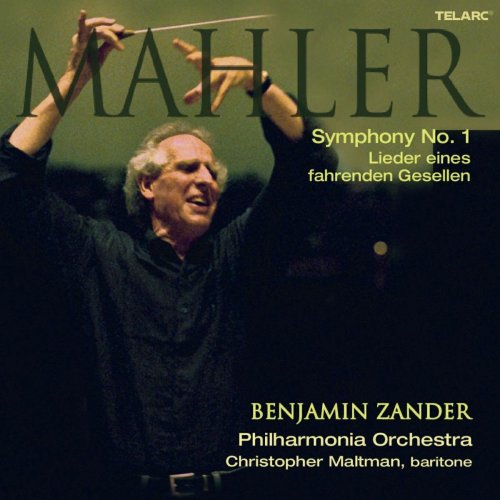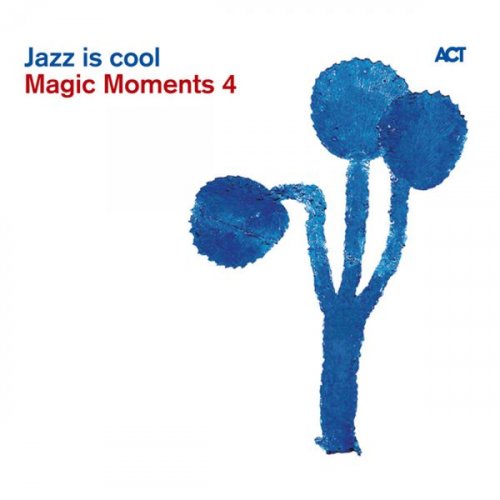Benjamin Zander, Philharmonia Orchestra - Mahler: Songs of a Wayfarer, Symphony 1 Titan (2005) [SACD]

Artist: Benjamin Zander, Philharmonia Orchestra
Title: Mahler: Songs of a Wayfarer, Symphony 1 Titan
Year Of Release: 2005
Label: Telarc [2CD-80628]
Genre: Classical
Quality: DSD64 image (*.iso) | FLAC (*tracks)
Total Time: 01:08:04 + 01:19:04
Total Size: 4,1 GB / 244 mb (+3%rec.)
WebSite: Album Preview
Now available in multi-channel SACD as well as CD!Title: Mahler: Songs of a Wayfarer, Symphony 1 Titan
Year Of Release: 2005
Label: Telarc [2CD-80628]
Genre: Classical
Quality: DSD64 image (*.iso) | FLAC (*tracks)
Total Time: 01:08:04 + 01:19:04
Total Size: 4,1 GB / 244 mb (+3%rec.)
WebSite: Album Preview
Conductor Benjamin Zander, who has built a distinguished body of work on Telarc with acclaimed recordings of Mahler symphonies, adds yet another chapter to this oeuvre with a brilliant recording of Mahler’s Symphony No. 1 in D Major, performed by the Philharmonia Orchestra. The Telarc release also includes Mahler’s Lieder eines fahrenden Gesellen (Songs of a Wayfarer), featuring baritone Christopher Maltman.
Details of the genesis of Lieder eines fahrenden Gesellen are not entirely clear, according to the liner notes by Michael Steinberg. “Most probably, Mahler composed them for voice and piano with the title Geschichete eines fahrenden Gesellen (Story of a Wayfarer) in 1883-1884, using themes from two of them in his Symphony No. 1, which was begun at about the same time and completed in 1888,” says Steinberg. “Initially there were to have been six songs rather than the four we now have. Mahler planned from the beginning to orchestrate the songs, but may not have actually done so until 1891. The present orchestration was completed in 1896 in preparation for the first performance of the cycle with orchestra, which took place on March 16, 1896 in Berlin.”
After numerous revisions following that initial performance, the surviving work consists of “four great songs that stand as a marker to what may have been no more than an infatuation,” says Steinberg, “although for at least one of the two people involved it was, while it lasted, a consuming one.” Mahler, a 23-year-old rising star at the time the work was composed, had developed a romantic involvement with Johanna Richter, a soprano in the opera company in the Hessian city of Kassel.
Mahler wrote to a friend in the early days of 1884 that he had written a cycle of six songs dedicated to Richter. “The songs are planned as though a traveling journeyman who has suffered some sort of fate sets out into the world and wanders musingly and alone,” Mahler wrote.
The genesis of Mahler’s Symphony No. 1 is even more lengthy and convoluted than that of Songs of a Wayfarer. It is a work that “even puzzled its own composer,” says Steinberg. “No other piece of Mahler’s has so complicated a history, and about no other did he change his mind so often and over so long a period. He transformed the total concept by canceling a whole movement, he made striking alterations in compositional and orchestral detail, and for some time he was unsure whether he was offering a symphonic poem, a program symphony, or just a symphony.”
Mahler did most of the work on the symphony in February and March 1888, having begun to sketch it in earnest three years earlier and using material going back to the 1870s. He revised the score extensively on several occasions. The second and last edition published during his lifetime is dated 1906. Mahler himself conducted the first performance of the work, then called Symphonic Poem in Two Parts, with the Budapest Philharmonic on November 20, 1889.
Dividing his time between conducting and teaching (his class on interpretation at the New England Conservatory attracts students from all over the world), Benjamin Zander travels extensively, giving master classes, touring with the Conservatory’s Youth Philharmonic Orchestra, and conducting guest performances. One of the unique characteristics of his concerts is to precede each performance with an illustrated talk, which is for many members of the audience an integral part of the whole experience. This is based on his belief that, with a little bit of guidance, everybody can understand and come to love great music.
Zander began working regularly with the Philharmonic Orchestra in 1995, conducting a series of Mahler symphonies to extraordinary critical acclaim. Zander’s recordings with the Philharmonia on Telarc include Mahler’s Symphonies Nos. 4, 5, 6, and 9, and the Fifth and Seventh symphonies of Beethoven. As with his other Mahler symphonies recorded on Telarc, this new recording includes a second disc wherein Zander discusses some of the background behind Songs of a Wayfarer and Symphony No. 1.
Winner of the Lieder Prize at the 1997 Cardiff Singer of the World Competition, Christopher Maltman has sung in recital at the Edinburgh, Salzburg, Vienna Konzerthaus, Amsterdam Concertgebouw, Cologne Philharmonie, Frankfurt Alte Oper and in New York at both Carnegie Hall and the Lincoln Center. His concert engagements have included the London Symphony Orchestra with Sir Simon Rattle, Los Angeles Philharmonic with Esa-Pekka Salonen and the New York Philharmonic with Kurt Masur. He is scheduled to make his Metropolitan Opera debut as Harlequin in Ariadne auf Naxos in September 2005.
Tracks:
SACD
Lieder Eines Fahrenden Gesellen (Songs Of A Wayfarer)
1-1 I. Wenn Mein Schatz Hochzeit Macht 4:08
1-2 II.Ging Heut' Morgen Über's Feld 3:54
1-3 III. Ich Hab' Ein Glühend Messer 3:09
1-4 IV. Die Zwei Blauen Augen Von Meinem Schatz 4:55
Symphony No. 1 In D Major "Titan"
1-5 I. Langsam. Schleppend 14:07
1-6 II. Kräftig Bewegt 7:03
1-7 III. Feierlich Und Gemessen, Ohne Zu Schleppen 11:15
1-8 IV. Stürmisch Bewegt 19:29
CD
Benjamin Zander Discusses
2-1 General Introduction 3:31
Lieder Eines Fahrenden Gesellen
2-2 I. Wenn Mein Schatz Hochzeit Macht 5:07
2-3 I. Wenn Mein Schatz Hochzeit Macht 2:59
2-4 III. Ich Hab' Ein Glühend Messer 2:58
2-5 IV. Die Zwei Blauen Augen Von Meinem Schatz 5:56
Symphony No. 1 In D Major
2-6 First Movement 15:19
2-7 Second Movement 6:56
2-8 Third Movement 12:59
2-9 Fourth Movement 23:17
Personnel:
Christopher Maltman, baritone
Benjamin Zander
Philharmonia Orchestra

![Brandon Seabrook - Hellbent Daydream (2026) [Hi-Res] Brandon Seabrook - Hellbent Daydream (2026) [Hi-Res]](https://www.dibpic.com/uploads/posts/2026-02/1771429539_a1475136036_10.jpg)
![Marvin Birungi - Soul Vaxnation (2026) [Hi-Res] Marvin Birungi - Soul Vaxnation (2026) [Hi-Res]](https://www.dibpic.com/uploads/posts/2026-02/1771660075_500x500.jpg)
![Tom Braxton - Flashback (2026) [Hi-Res] Tom Braxton - Flashback (2026) [Hi-Res]](https://www.dibpic.com/uploads/posts/2026-02/1771426129_1.jpg)

![Gonzalo Mazzutti - Lo que nos une (2026) [Hi-Res] Gonzalo Mazzutti - Lo que nos une (2026) [Hi-Res]](https://www.dibpic.com/uploads/posts/2026-02/1771563491_cover.jpg)
![Kento Tsubosaka - Lines (2026) [Hi-Res] Kento Tsubosaka - Lines (2026) [Hi-Res]](https://www.dibpic.com/uploads/posts/2026-02/1771391986_zw4gprxc9nex6_600.jpg)

